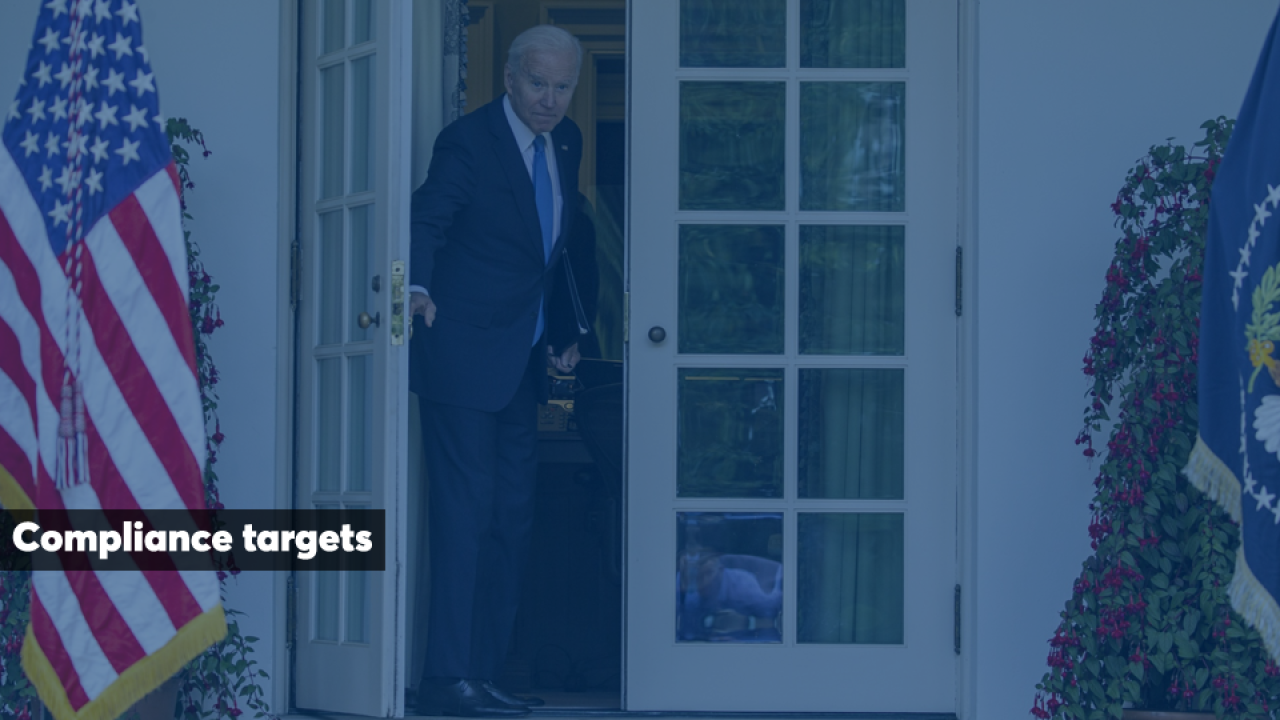His critics and supporters agree: President Biden’s
There are reasons for doubt. They start with technical matters: the effect of the changes on revenue and on saving and investment. Broader questions also arise. Is Biden’s approach to tax reform coherent? And can it be squared with one of America’s great strengths: its regard for profit-driven innovation and its willingness to reward and applaud success?

The president’s most arresting idea combines two changes to the taxation of investment income. At the moment the top rate of the
The two components are linked. Capital-gains tax is paid only when assets are sold, and owners can usually choose when that is. The higher the rate, the bigger the incentive to delay the sale and defer the tax. Stepped-up basis goes one better, eventually canceling any taxes owed. If stepped-up basis were left in place, the rate that maximizes proceeds from the tax would likely be less than 43.4%, because a rate this high gives too big an incentive to defer and avoid the tax. Scorers at Congress’s
The expert consensus on this question has been moving in Biden’s direction. Recent studies emphasize, for example, that the preferential tax rates for capital gains reward efforts to disguise wages as investment income, as with the notorious
Biden also wants to raise the tax on corporate profits from 21% to 28%. Again, avoidance is an issue. The new rate would be the highest of any major economy, restoring the incentive to move profits offshore. The administration recognizes the problem and aims to mitigate it with new anti-avoidance measures — including an
When it comes to taxing capital, that’s not all. The states have their own taxes on corporate profits and personal income. Collectively, these multiple layers of taxation threaten to impose very high rates on wealthy households. According to analysis by the

What would such rates mean for saving and investment, and hence for long-term growth in output and earnings? Economists used to think it was simple: Higher taxes on capital hold back growth. They’re no longer so sure.
To begin with, the tax rates the president is proposing are hardly unprecedented. The top rate of federal income tax ran as high as 92% in the 1950s, a decade not usually associated with slow growth. But this is misleading. During the ’50s, the top 1% paid roughly 42% of their income in tax; in 2020 they paid roughly 34% — less, but not nearly the difference you’d guess by comparing top federal tax rates. The main reason, as always, is avoidance. Extremely high rates look much more progressive than they really are: People find ways not to pay, and the higher the rate, the harder they try.
There’s another reason for arguing that Biden’s tax increases on the rich wouldn’t seriously harm investment. Most of America’s financial capital is tax-exempt. Three-quarters of the shares traded on U.S. stock markets are held in tax-sheltered retirement accounts or by charitable endowments, foreign investors, and other nontaxable owners.
Also, the corporate tax allows credits for investment — and Biden’s plan includes a 10% “Made in America” credit for investment in domestic manufacturing. This reduces the marginal tax on new equipment, in some cases making it a subsidy. The corporate tax, it’s argued, falls mostly on excess profits or “rents” rather than on the so-called normal returns that drive investment decisions. As long as avoidance can be contained, a higher corporate tax, plus a higher rate on capital gains, should raise a lot of money from the people who can best afford it, without hurting the economy.
-
The White House’s sweeping proposal to raise taxes on the wealthy will likely force advisors to get creative as they structure sales of their practices.
April 29 -
Biden’s proposal to raise capital gains taxes on investments profits would hit many business owners, not just ultra-wealthy investors.
April 27 -
Residential property owners are the most likely to be impacted by proposed changes in the administration’s American Families Plan.
April 28
Maybe. Those sky-high combined tax rates still ought to give one pause, especially when seen in the wider context of Biden’s prospectus. The president’s approach to tax reform might be politically astute, but from a fiscal-design point of view, it’s partially self-defeating. It promises to keep the middle class safe, which rules out measures to broaden the tax base — moves that should be part of any serious revenue-raising reform, such as taxing carbon or closing the deductions for mortgage interest and other spending. And it puts all of the additional burden on a sliver of high-income households, which happens to be at odds with universal practice in other rich countries that have chosen to build more generous welfare states.
The U.S. raises less in tax than most other industrialized countries: Its federal and state revenue in 2018, for instance, was 24% of gross domestic product compared with a 34% average for countries that belong to the Organization for Economic Cooperation and Development. But this lower revenue isn’t because of a tax system that’s kinder to the rich than those of other countries. The U.S. tax system is actually among the most progressive. The U.S. is an outlier by international standards because its taxes on consumption — levied mostly by states — are so low. U.S. taxes on goods and services were 18% of all revenue in 2018, compared with an OECD average of 32%. In short, other countries collect value-added tax; the U.S. doesn’t.
Governments of the big European economies lean harder against poverty and inequality than the U.S. but not with bigger levies on capital. They use VATs on goods and services — meaning higher taxes on the middle class — to raise roughly as much revenue as their combined taxes on income, then spend the proceeds on generous social services, including universal health care.
The lessons from abroad can be pressed too far. Biden hasn’t announced a plan to build a European Union-style welfare state. His early spending proposals, ambitious as they seem, fall very far short of that. And another aspect of American exceptionalism is worth noting when debating who ought to pay for public spending. Citizens of other countries can and do emigrate to avoid punitive tax rates, which puts a ceiling on how high taxes on the rich can be pushed. Americans stay liable for U.S. taxes wherever they live in the world. To escape the Internal Revenue Service, they have to renounce their citizenship and pay a hefty exit tax.
Even so, the experience of other rich countries suggests there are limits to how much you can support higher public spending with higher taxes on the rich. Biden and his team show little sign yet of acknowledging this.
Indeed, many Democrats talk as though higher taxes on the rich make sense regardless of what revenue, if any, they raise. If you can’t promote equality by leveling up, they seem to believe, the least you can do is level down. Biden used to be a moderate on tax policy; he should be disturbed to get support from Senator
The focus is supposed to be on the wealthy and corporations, since they're the ones who account for the majority of tax misconduct, but what does that mean exactly?
This might be the most important thing about Biden’s opening bid on tax policy: It bends toward the new ideology embraced by many American progressives and perhaps, though this remains to be seen, by a growing proportion of American voters. If policy is adopted to follow this new course — and stays on it through one or more election cycles — the results could be far-reaching.
Although Biden’s new taxes on capital are designed to affect only a small group of households in any given year, keep two things in mind. First, that small group is a disproportionately significant minority so far as economic growth is concerned. In particular, it includes many owners of successful businesses on their way, they hope, to becoming much bigger businesses. Second, this isn’t a fixed population. A far greater number of prosperous households will find themselves in the highest-taxed group from time to time, thanks to fluctuations in their income or sale of a home or other assets. This will influence people’s choices, including the risks they’re willing to take in starting a business.
The U.S. is still seen as a place where enterprise is praised and rewarded. It remains a magnet for the world’s brightest, most ambitious, and most acquisitive. Not coincidentally, it has incubated the world’s most innovative companies, whose products and services have raised living standards in the U.S. and around the globe.
The case for better social provision and the taxes required to pay for it is strong, to be sure; the U.S. tax code needs reform to make it fairer and cries out for simplification. But the U.S. has a lot to lose if its politics and policy start seeing wealth earned by succeeding in business as a failure of government and a sickness that must be cured.






